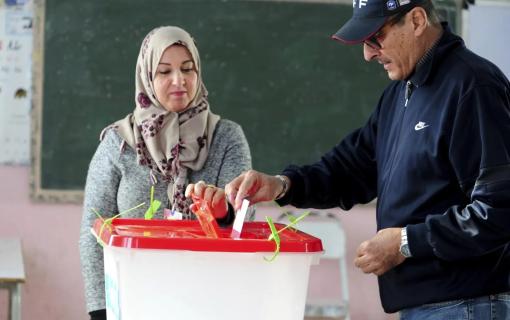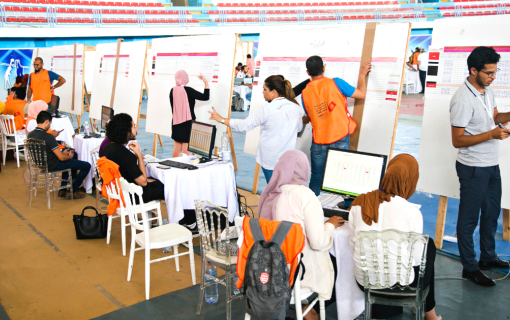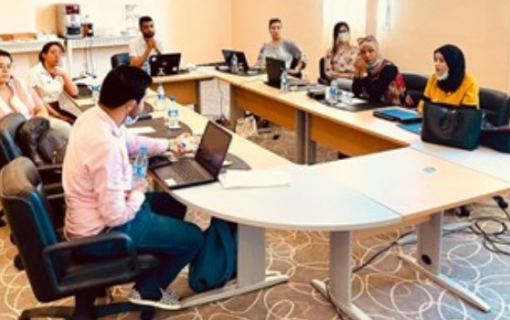Strategic Planning for Effective Electoral Management in Tunisia
On February 24, 2015, the International Foundation for Electoral Systems (IFES) organized a presentation at the headquarters of Tunisia’s election management body (EMB), the Independent High Authority for Elections (or Instance Supérieure Indépendente pour les Élections [ISIE]), on “Strategic Planning for Effective Electoral Management.” IFES Senior Consultant on Strategic Planning, and former Chief of Party for IFES Egypt, Antonio Spinelli led the presentations and provided an introduction to main concepts, elements, and methodologies of strategic planning based on his experience writing the IFES guide Strategic Planning for Effective Electoral Management and working with other election commissions throughout the world.
Seven of the nine ISIE Commissioners attended the presentation, which was followed by a question and answer session between the Commissioners and Spinelli. The presentation was divided into three sections: 1) the context of electoral management and its complexities; 2) the importance of planning to manage elections effectively; and 3) an overview of strategic planning in electoral management.
The presentation discussed the complexities of strategic planning as a dynamic practice in a continuous state of evolution, a method generally used in a time-sensitive practice and without universal solutions. Spinelli described how these complexities stem from the multiple activities and sub-activities that exist and that are all intertwined during the electoral cycle. He stressed that strategic planning is a process of self-examination and that any disruption can have serious ramifications on the electoral process. Any EMB that aspires to a perfect election should put strategic planning at the heart of effective electoral management.
The question and answer session that ensued was lively and the Commissioners were interested in discussing the methodology with the Spinelli and laying out ways to define strategic planning during a disciplined planning process. The ISIE Commissioners expressed an interest in the procedures involved in the process and how to establish strategic planning that would lead to the success of more than one electoral cycle. Since the ISIE had just completed three rounds of elections in 2014, the time is ripe in a post-electoral environment to start planning such an exercise. The planning should be all-encompassing, not only including the election Commissioners but also the operational side of the ISIE (heads of departments, staff, and regional branches of the ISIE) to allow all stakeholders to align their work toward commonly-shared goals.
A good portion of the discussion dealt with adapting this strategic planning tool to the Tunisian context. Spinelli reiterated that once strategic foundations and pillars are defined, an all-inclusive identification of comprehensive components of the planning would lead to creating the required documents that would be applied to the Tunisian model. This planning should always be a work in progress given that external factors may affect the priorities set by the ISIE. Hence, the planning can gradually be improved. Once the strategic plan is finalized, this is when the “real” action begins. It is important to identify the anticipated needs and how to address them. All activities and sub-activities should be implemented in a timely manner in compliance with the existing laws and regulations. Each Commissioner received a copy of the strategic planning guide in Arabic.
Since the inception of the ISIE in January 2014, IFES, through a project funded by the U.S. State Department’s Middle East Partnership Initiative, has worked to strengthen the ISIE’s capacity by providing it with technical expertise on issues including election administration structure, electoral operations, voter outreach, communication strategies, the establishment of a Media Center, campaign finance, and training of electoral officials.









